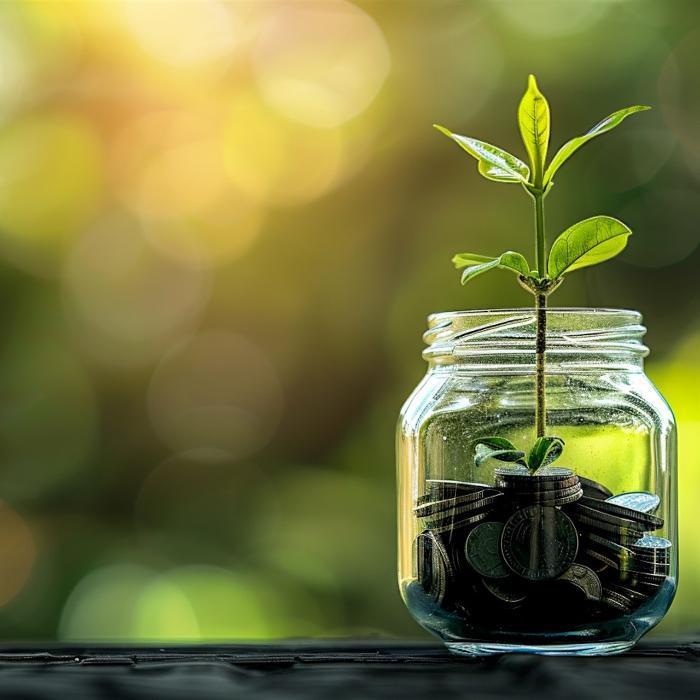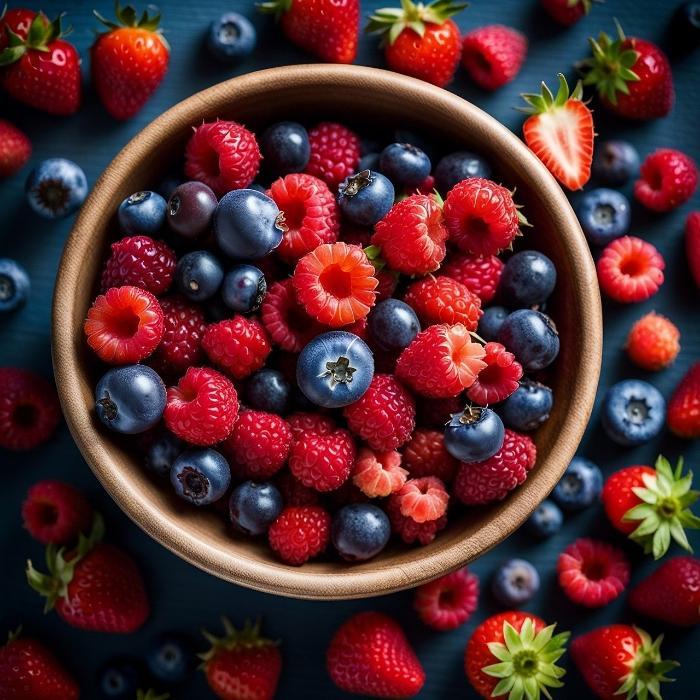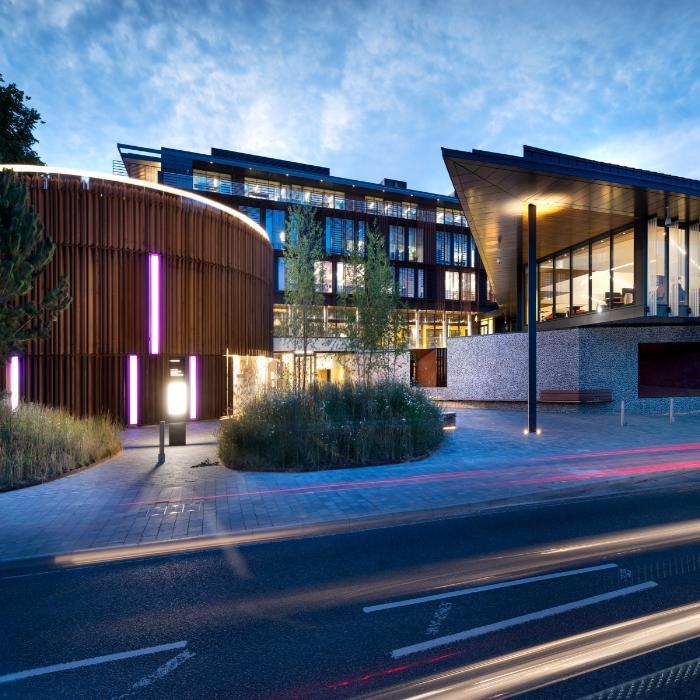
Sustainable campus and community
We are committed to reducing our environmental impact and improve sustainability across our campus
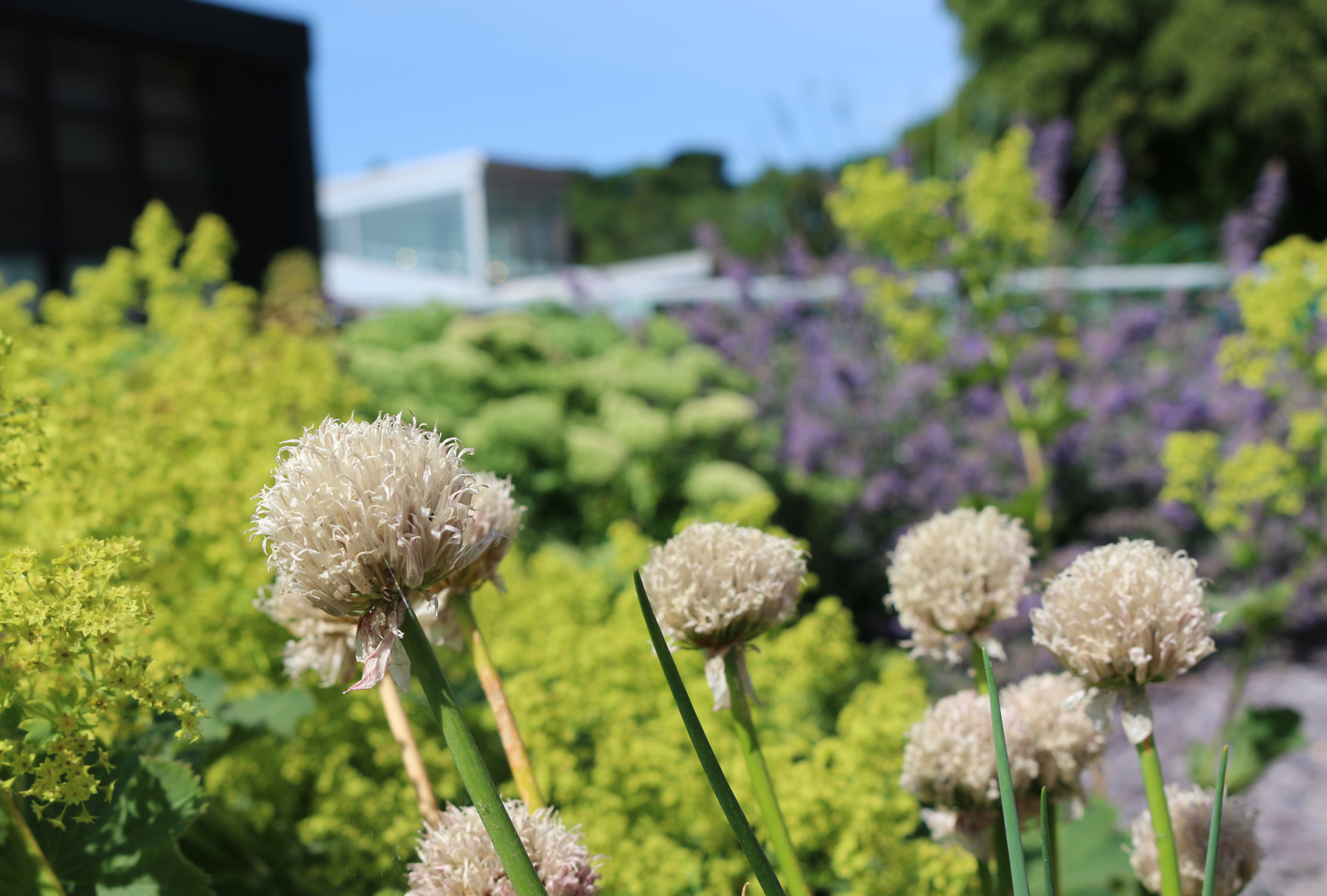
As a University, we are committed to embedding sustainability into all aspects of university life, creating a positive environmental impact and contributing to a sustainable future. This is reflected across the institution, from our estate through to the food we serve on campus. The university has an Environmental Strategy which was signed off in 2018 and this is reported against annually detailing progress against targets set.
The university has committed to being carbon net zero by 2030.
On these pages you can find out more about what the University is doing in terms of sustainability as well as how you can get involved
Reuse, Recycling & Waste
The University is committed to reducing the total amount of waste produced through the running of campus services. We work with our staff, students, visitors and Procurement Team to achieve these reductions. Alongside waste reduction, we have set ourselves the ambitious recycling target of 80%.
The University is in an innovative waste and recycling contract with the Universities of Southampton, Solent, Portsmouth, Bournemouth, Bournemouth Arts and Southampton City College. Together, we form the South Coast Affinity Group (SCAG) and share our services, expertise, and vision of waste management, focusing on reuse and recycling.
The University's recycling rate in 2022/23 is 70%.
Since 2013 the University has not sent any waste to landfill instead waste which cannot be recycled is sent for energy recovery.
We operate a three-bin system across campus and in halls of residence for dry mixed recycling, general waste, and food waste. Food waste from halls, residences, catering outlets and office kitchens is sent for anaerobic digestion and our waste cooking oil is converted into biodiesel. We also collect other forms of materials that cannot go into conventional recycling streams through Terracycle and Reworked recycling schemes, this includes items such as PPE (face masks). Gumdrop bins for recycling chewing gum are located across the campuses which aim to reduce the littering of chewing gum. The gum collected is recycled and used to form our Gumtec coffee cups which students and staff are provided with and encouraged to use in place of disposable coffee cups.
Biodiversity Action Plan
The University of Winchester is situated in approximately 13 hectares of picturesque land, primarily areas of amenity grassland and interspersed with habitats of higher ecological value such as wildflower meadows, hedgerows, scattered trees and ponds.
The university is committed to managing these green spaces in a way that creates a sustainable haven where the principles of environmental stewardship, community engagement, and biodiversity conservation flourish
The University's Biodiversity Action Plan (BAP) sets out the University's plans to create and enhance habitats and support wildlife across our campuses. We implemented our first BAP in 2012 in partnership with Hampshire and Isle of Wight Wildlife Trust. Projects completed included the creation of a wildlife pond, a butterfly garden, the allotments, wildflower planting and native hedgerow planting. The BAP was updated in 2016, after which followed a suite of surveys of King Alfred and West Downs quarters, and then again in 2021. This revision reflects the increasing hedgehog population on campus, following dedicated efforts by our students reflected in our Hedgehog Friendly Gold status.
BAP projects completed
In conjunction with the Wildlife Trust and the Students' Union, students and staff volunteers have taken part in small mammal monitoring, sycamore clearance in our wooded copse and pond clearance during 2017/18. We built three new hedgehog nest boxes for the campus, installed a camera in a great tit nest box and created new long grass habitats by reducing mowing regimes.
In the summer of 2018, volunteers from Hampshire Swifts surveyed the University campus and all University Managed Houses in the Winchester to establish Swift nesting locations.
In Spring 2019, student volunteers worked with Hampshire Swifts to build new Swift nest boxes..
Our wildflower banks continue to thrive and many areas of campus have been left unmowed the last couple of years to encourage and provide food for invertebrates.
We are also delighted to have joined the Hedgehog Friendly Campus (HFC) scheme in October 2019, and were awarded a prestigious Gold award after three years of hard work in March 2022. This work has seen students and staff create hedgehog friendly habitats, set up feeding stations and help to survey hedgehog activity on campus.
Reducing Waste – Coffee Cup Case Study
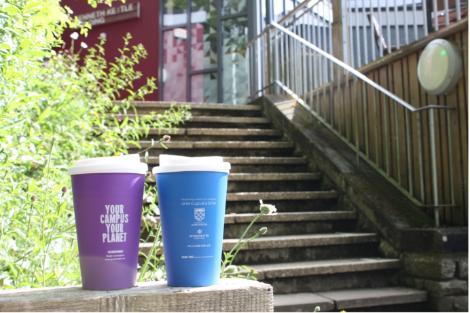
Since November 2016, the University has been working to reduce its disposable coffee cup use by implementing various schemes that help staff and students ditch disposables and make behavioural changes. A surcharge, know as the latte levy was introduced on all hot and cold drinks sold in disposable cups in our café outlets. The environment team then began giving reusable cups to all staff and students so they could refill and reuse at outlets across campus. Our reusable cups are Gum-tec Americano mugs - made of 20% chewing gum (around 42 pieces per cup). The chewing gum we collect on campus is sent to Gumdrop to then be recycled into the Gum-tec mugs. A great example of closed-loop recycling in action! We also offer deposit cups for those who do not want a disposable and may have forgotten their own reusable cup.
Since starting these initiatives we have saved over 294,000 disposable cups from being used on campus! An average of 52 drinks in 100 are now served in a reusable cup, up from just 3 in 100 in 2015/16.
Our coffee cup initiative has won three national awards, featured on the BBC and been selected as one of the UK’s 100 best breakthroughs in the MadeAtUni campaign.
Reuse at the University
Between April and June the University runs an end-of-year move-out project which supports students to donate unwanted items to a good cause when they move out of halls of residence. Students are provided with bags and stickers for clothing, bedding, homeware, kitchenware, books, and other items such a non-perishable food. Bags are collected weekly from halls, sorted, and donated to local charities around Winchester.
We also encourage students and staff to refill and reuse on campus as much as possible, we currently have over 20 refill points on campus to top up water bottles.
Plastic free university status
In July 2022 the University were officially awarded our Plastic Free University status from national charity Surfers Against Sewage (SAS).
In 2018 the University made an official statement that it would begin work to remove all un-necessary single-use plastics from its operations. A lot of this work aligned with the SAS community accreditation so the University decided we would also work towards this award.
This award of ‘Plastic Free Communities’ Status highlighted the work and the commitment we made as an institution to tackling single-use plastics. It by no means signals we are plastic-free, and we do not claim to be, but we are clear that we view SUP as a problem and have made a commitment to do what we can feasibly to remove them from our operations.
The award shows we are tackling the problem at the source and engaging our community to think about our impact. But it also recognises that this is only the beginning. As part of the award we have committed to the next phase of the scheme which is ‘Continuing the Journey’ where we can build on the momentum both within the University but also in the wider community beyond 2022/23.

